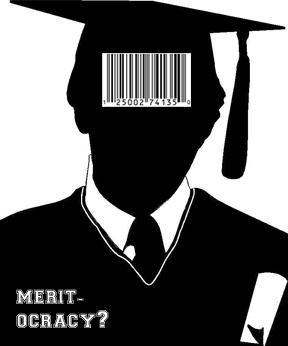Are students consumers? Are universities a marketplace? Are degrees a right of passage we buy, like tickets into the workforce?
Albert Einstein once said:
“The crippling of individuals I consider the worst evil of capitalism. Our whole educational system suffers from this evil. An exaggerated competitive attitude is inculcated into the student, who is trained to worship acquisitive success as a preparation for his future career.”
Does competition drive participation in university life today? Is success something that you can acquire like a new car or a desired item of clothing? The commonly heard student mantra, “what do I need to do to get an A?” reflects this acquisitive approach to education that sees learning as a set of outcomes that can be accumulated or consumed. The good student follows rules, meets deadlines and retains the facts, figures and formulas needed to achieve. And in return for this behaviour, the student passes from university into the workforce, meeting more deadlines and learning more formulas for success.
However, the current financial crisis offers fewer chances of employment after graduation. Today, New Jersey students graduate with an average debt of $23, 792 and the unemployment rate for college graduates in the US is 9%, making many worry how they will be able to pay off their loans. However, going into the red is still the more lucrative option, as those without a college degree are twice as likely to be out of work. This culture of college debt and growing unemployment lies at the heart of the current student movement against tuition increases in Quebec, Canada where the red square worn by protesters symbolizes struggle against student debt.
For more on student debt, read the 2011 project student debt report

Hi, this is a comment.
To delete a comment, just log in, and view the posts’ comments, there you will have the option to edit or delete them.